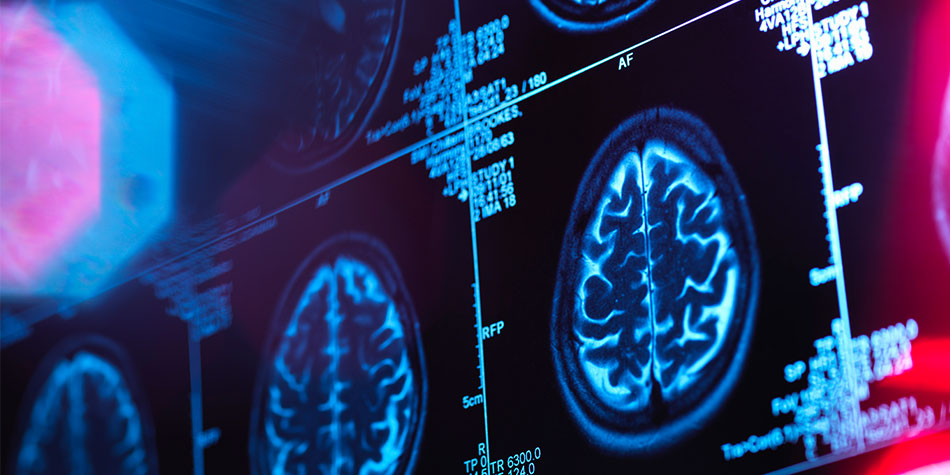
“Humans are just naturally at risk for having strokes because we are upright,” says Dr. William Hills, a neurohospitalist at Eastern Idaho Regional Medical Center (EIRMC). “Everyone has a 3% chance of having a stroke, and that risk increases with age, but there are conditions that increase risk. Hypertension is the number one risk factor for stroke.”
Hypertension is high blood pressure. The heart creates pressure when it beats (systolic pressure) and rests (diastolic pressure), pushing blood through arteries, veins, and smaller vessels to oxygenate the body. Normal, safe blood pressure, as defined by the American Heart Association (AHA), is lower than 130/80. Anything higher than that is considered hypertension, a deadly condition that affects the body in numerous ways, including the increased risk for having a stroke.
“Hypertension increases the risk of stroke by 25% over a lifetime,” adds Dr. Hills. “Now, if you were going to Vegas with those odds, you’d be pretty excited because you’re more likely to win.”
But there’s nothing lucky about having a stroke.
Why are people with hypertension more at risk for stroke?
According to Dr. Hills, “the primary reason is hardening of the arteries, or arteriosclerosis, which makes the blood vessels more fragile and can lead to two types of strokes: ischemic and hemorrhagic.”
Endothelial dysfunction is the main cause of ischemic stroke in patients with hypertension. As Dr. Hills explains, “Blood vessels are like a three-layer hose. There’s an outer layer, a middle layer, and an inner layer. The inner layer is the endothelium, which is fragile. The sheer force of high blood pressure can ‘rough up’ the endothelium. Then platelets can clump together on the rough surface, forming a thrombus [clot], which can break off and travel to the brain, causing a stroke.”
With hemorrhagic stroke, says Dr. Hills, “the high blood pressure itself is the culprit. Hypertension causes the vessels in the brain to become hard, then narrow, and they can close off or pinch. Then the pressure causes a vessel to burst.
“Before we do a CT scan, it’s hard to know which type of stroke a person has had.”
Beyond strokes: Hypertension can lead to dementia
As noted, hypertension causes arteriosclerosis.
“When arteriosclerosis causes tiny blood vessels in the brain to close off, they become scarred,” Dr. Hills explains. “Over time, if those areas develop a bunch of little tiny strokes because of high blood pressure, it interferes with how the brain functions. This is called vascular dementia.
“Even if you don’t have a major stroke, you can still have these mini strokes that are never discovered. When they accumulate, you develop dementia.”
Whatever the cause, the symptoms of a stroke are the same.
Strokes caused by hypertension have the same symptoms as stroke caused by any condition:
- weakness/numbness on one side of the body
- double vision or trouble seeing
- dizziness, trouble walking, balance problems
- trouble speaking
- severe, sudden headache
- sudden confusion
If you or someone you are with experiences any of these symptoms, it is a medical emergency requiring immediate action.
Reducing the risk of hypertension, stroke, and dementia
“It’s amazing how many stroke patients we see in the ER who thought that their 160/90 BP wasn’t a problem; ‘it was just a little high,’” says Dr. Hills. “Having ‘a little hypertension’ means you still have hypertension and you need to do something about it.
“High blood pressure is not painful, so you may not even know you have it. You have to get it checked every year by your primary care provider.”
Basic lifestyle changes can improve the odds of avoiding hypertension, stroke, and dementia. First and most important, says Dr. Hills, “if you smoke, quit. Get plenty of exercise, at least 30 minutes of cardio five times per week. Get good sleep. Eat healthy foods—the AHA recommends a Mediterranean-style diet to reduce hypertension. And, super important, lose weight. I know these changes are hard, but they are very important. If you already have hypertension, see your doctor regularly and take medications as prescribed.”
The Right Care
EIRMC is a Primary Stroke Center certified by the Joint Commission and provides the most advanced stroke treatment in the area. Since “time is brain” when it comes to stroke care and the likelihood of surviving, EIRMC is the right place to receive care for stroke.
$webqFacilityNumber
Need a Physician?